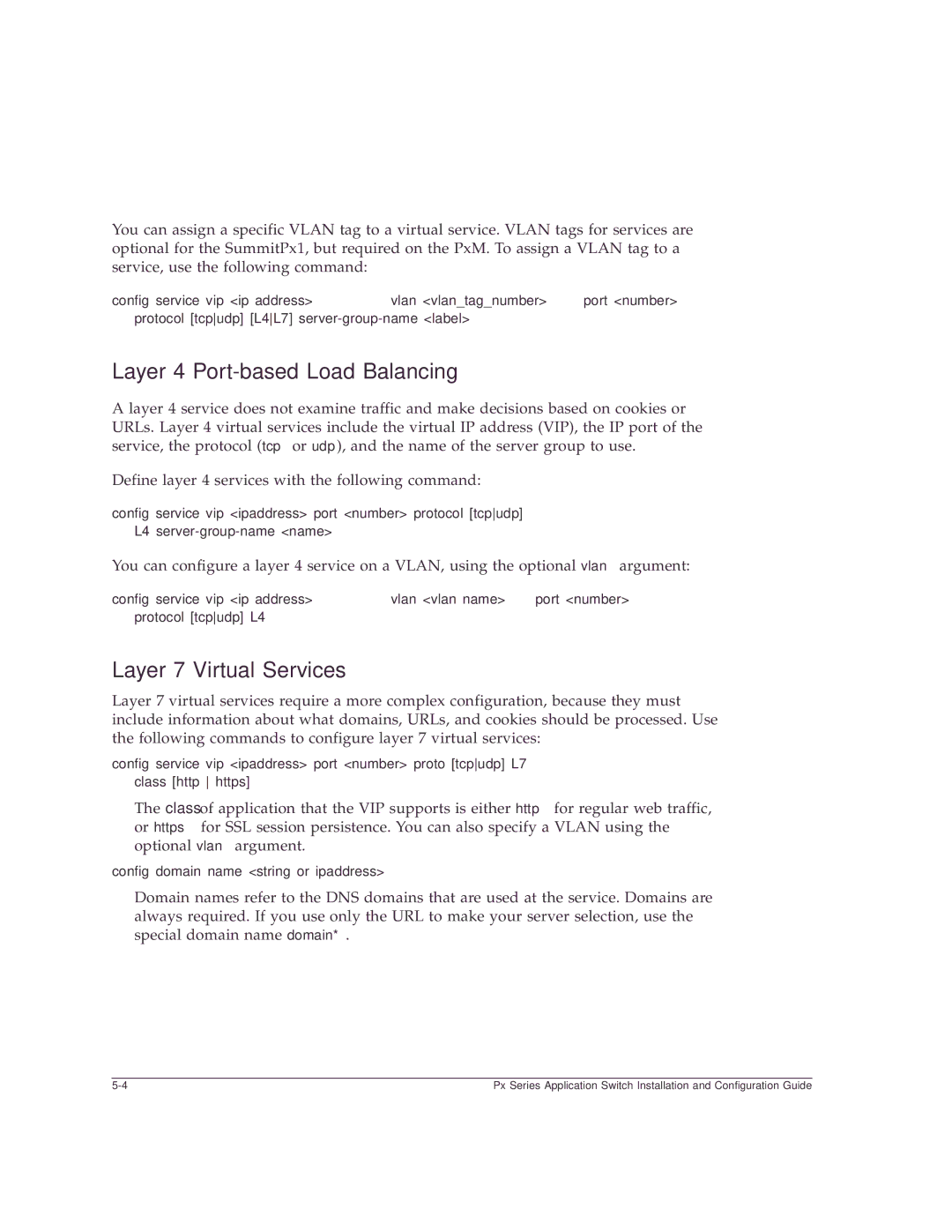You can assign a specific VLAN tag to a virtual service. VLAN tags for services are optional for the SummitPx1, but required on the PxM. To assign a VLAN tag to a service, use the following command:
config service vip <ip address> vlan <vlan_tag_number> port <number>
protocol [tcpudp] [L4L7]
Layer 4 Port-based Load Balancing
A layer 4 service does not examine traffic and make decisions based on cookies or URLs. Layer 4 virtual services include the virtual IP address (VIP), the IP port of the service, the protocol (tcp or udp), and the name of the server group to use.
Define layer 4 services with the following command:
config service vip <ipaddress> port <number> protocol [tcpudp]
L4
You can configure a layer 4 service on a VLAN, using the optional vlan argument:
config service vip <ip address> vlan <vlan name> port <number>
protocol [tcpudp] L4
Layer 7 Virtual Services
Layer 7 virtual services require a more complex configuration, because they must include information about what domains, URLs, and cookies should be processed. Use the following commands to configure layer 7 virtual services:
config service vip <ipaddress> port <number> proto [tcpudp] L7
class [http https]
The class of application that the VIP supports is either http for regular web traffic, or https for SSL session persistence. You can also specify a VLAN using the optional vlan argument.
config domain name <string or ipaddress>
Domain names refer to the DNS domains that are used at the service. Domains are always required. If you use only the URL to make your server selection, use the special domain name domain*.
Px Series Application Switch Installation and Configuration Guide |
